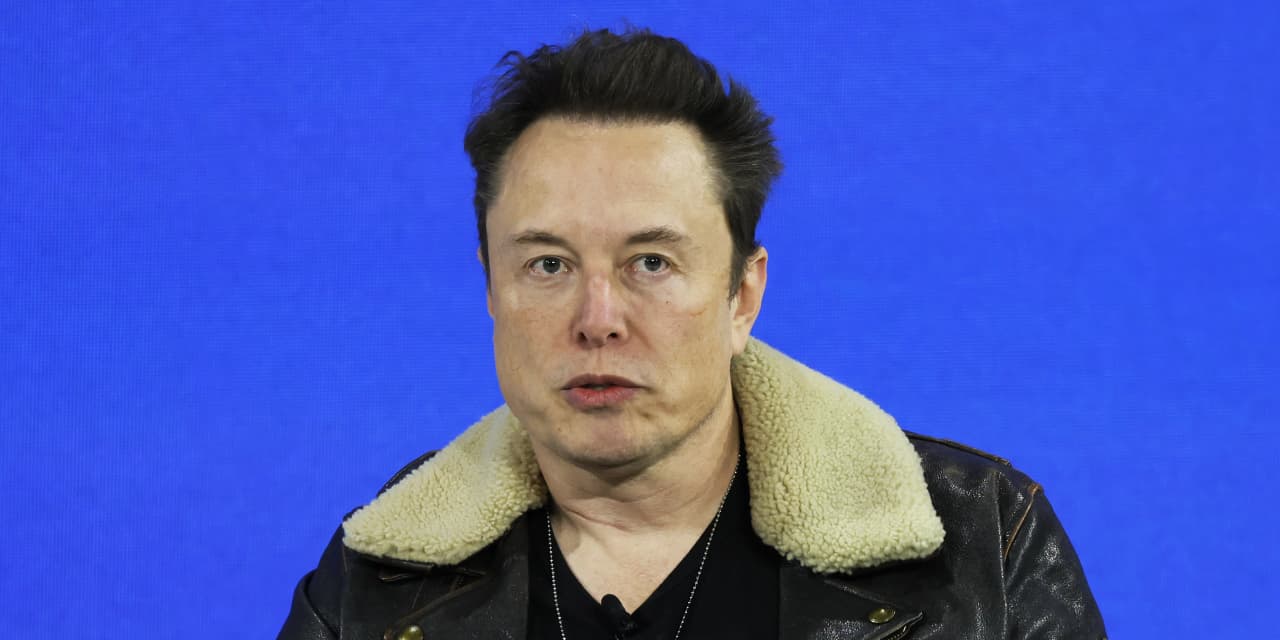Tesla
reports fourth-quarter earnings on Wednesday. Along with questions about electric vehicle pricing, demand, and profitability there will be questions about CEO Elon Musk’s pay. Mainly there’s the question about whether Musk’s management acumen and vision are worth another $30 billion or so.
The answer is no, not really. That amount of money is tough to justify—-even for Musk. What’s more,
Tesla’s
board doesn’t have to give him all that money to satisfy its CEO.
This past week, Musk created a governance firestorm after he tweeted about potentially taking some of his AI and robotics projects outside of Tesla if he didn’t achieve 25% voting control of Tesla stock.
Musk owns, very roughly, 13% of Tesla stock and stock options representing another 7%. Another 5% would amount to about $34 billion based on recent stock levels.
Whether or not Musk considers his options as a part of his control isn’t clear. Musk and Tesla didn’t respond to questions about the tweets.
Thirty-plus billion for any CEO is nearly unprecedented for anyone except Musk.
He was awarded some 300 million stock options in 2018—that vested based on hitting performance milestones. It made him one of the highest-paid CEOs in history. Barron’s has struggled to find another higher-paid CEO.
There is no perfect way to evaluate CEO pay. Musk’s options expire in 2028. In one respect, the board awarded up to 30 million options a year for 10 years. Based on Tesla’s stock price at the time, that was worth some $700 million a year. At today’s prices, the award is worth closer to $7 billion a year.
How do those numbers compare to others?
Apple
CEO Tim Cook is worth roughly $2 billion. He has been CEO for 12-plus years. That works out to roughly $167 million a year.
That is only one rough comparison. It’s very different from compensation reported annually by companies in proxy reports. Those numbers are typically a combination of salaries, bonuses, and stock-based awards. Coming into 2023, Cook’s reported compensation averaged roughly $70 million a year for the past three years. Musk averaged $0, according to the proxy statement.
Neither proxy figure reflects the reality of the situation. In general, top CEOs of the largest, most valuable, companies in the U.S. have earned nine-figure salaries—hundreds of millions annually—in recent years. Only Musk has earned, or asked for, 10- or 11-figure numbers.
Musk is worth a lot, but based on comps, his ask is tough to justify. That leaves the board with another option. They can create a class of super-voting stock to award to Musk. That isn’t unprecedented in the car business. Shares held by members of the
Ford
family have 36 votes per share.
A new class of stock would require a shareholder vote, according to a securities lawyer who didn’t want to be identified. Amendments to certificates of incorporation require shareholder approval. What’s more, the board has a fiduciary duty to all shareholders. But “if they get the vote, anything is fair game,” they said.
Letting shareholders decide to boost Musk’s control of Tesla, without paying billions more in stock-based compensation, seems like the best way forward.
How the compensation drama will resolve itself is anyone’s guess.
Write to Al Root at [email protected]
Read the full article here




